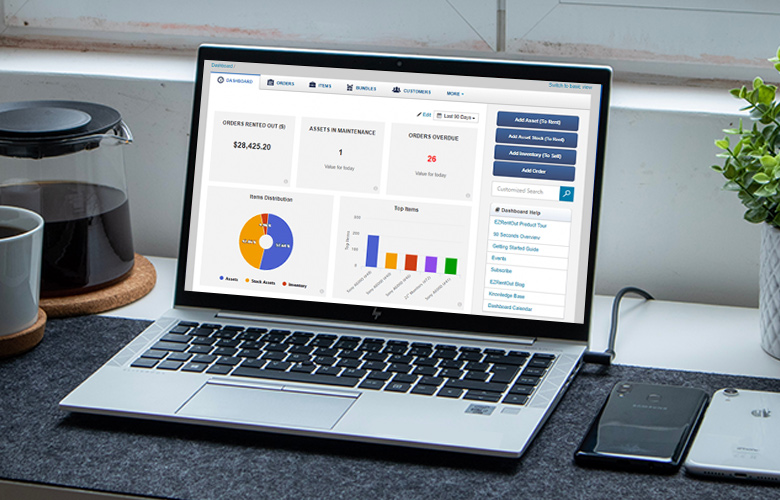My Real Estate Advisor
You must do more than discover excellent places or finish sales to keep ahead in the quick-moving property business. You must be efficient and well-organized and have a good plan for handling your customer relationships. A robust Customer Relationship Management system for real estate becomes essential. As new businesses face complicated market situations in 2024, adding an excellent CRM to their operations turns from beneficial to crucial. We should explore eight convincing reasons that show how important it is for a growing business to invest in real estate CRM as it changes the situation.
1 Streamlined Lead Management:
For new businesses in the property sector, handling potential customer data well is a big challenge. By using dedicated
software for customer relationship management, it’s possible to put all details about prospects in one place, monitor conversations with them, and decide which ones should be contacted first. When you get a potential contact from someone asking about the property or from an event where people meet for business, your customer relationship management system helps ensure you take advantage of every chance. It would benefit if you searched for functions such as ranking the importance of leads and automatically distributing them to handle them better. Also, high-level CRMs have features for growing relationships with possible customers over time, making it more probable that they will become actual clients.
2 Enhanced Client Communication:
In the world of property competition, having good timing and talking directly with people helps make relationships with customers better. A CRM for real estate lets you keep contacting clients without difficulty. With automatic email programs and tailored suggestions for properties, you can care for potential customers and maintain clients’ interest during their search. Also, by joining together different ways of communication, such as text messages and social networks, it is possible to connect with clients in the places they prefer. Notifications and alerts that come immediately help you not overlook all significant messages and chances to follow up, which improves how quickly you can respond and makes your clients happier.
3 Efficient Transaction Management:
Completing property sales requires managing many duties, papers, and time limits. A specialized CRM makes handling transactions easier by offering a single place to keep and arrange all information connected to the transaction. Monitor agreements, manage files, and schedule alerts for crucial events to ensure deals conclude without problems. Using a suitable CRM system can decrease mistakes, reduce the amount of paper used, and simplify the whole process of making transactions. Moreover, specific CRMs allow automating workflows, which means you can set up regular procedures for tasks that happen often. This helps make things more efficient and decreases the need to do work by hand.
4 Data-Driven Insights:
Understanding this information deeply helps make sound business choices in the current world where data is critical. CRMs made for real estate have solid tools for analyzing and reporting that give helpful knowledge about how your business is doing. Monitor significant numbers like how many leads become customers, the progress of sales, and the return on investment for marketing to see patterns, improve plans, and push business expansion. Having immediate access to helpful information allows you to make wiser choices that advance your company. Sophisticated CRM systems might use artificial intelligence and algorithms from machine learning to offer predictive analytics, which can assist you in forecasting market movements and staying in front of your competitors.
5 Seamless Integration with Third-Party Tools:
To improve work speed and get more done, your CRM must mix well with the essential tools and systems you use. This includes things like software for email marketing, managing properties, or keeping track of finances. Connecting these lets you build a system that works smoothly together and helps make your tasks easier. Search for a property management CRM that offers many integration choices so you can tailor your tools to fit what your company requires. APIs and webhooks allow for two-way data sharing between your CRM and other software, helping to keep information uniform and correct throughout all of your technology systems.
6 Scalability and Customization:
As the real estate company becomes more extensive, what you need changes too. An adjustable CRM system can change size and be made to fit your changing business situation. If your business is a small specialized agency or a big company in commercial property, you can adapt the CRM to conform precisely to how you do things, work, and your brand style. You can change fields and parts of it to match what users are allowed to do and how tasks flow so that this system closely supports your specific business aims. Furthermore, CRMs on the cloud provide limitless possibilities for growth, enabling you to include more users and enhance features in line with your business’s development.
7 Mobile Accessibility:
In a business where it is essential to move around, using your customer relationship management system anywhere you go is critical. Pick a real-estate CRM with robust mobile use features so you can handle your work at any time and place. If you are meeting with clients, going to properties, or joining networking events, having a CRM that works on your phone means you can always access the information you need. You can look at property information and change client details to keep working even when not at your office desk. Native mobile applications offer a smooth experience for users on different devices, and they can access data offline with the feature that automatically syncs information when there is little or no internet connection.
8 Competitive Advantage:
In a market with lots of competition, having an advantage against other competitors is very valuable. Putting money into an excellent real-estate CRM makes your company stand out because you provide better service, work more efficiently, and show outstanding professionalism. A CRM helps you give custom experiences to customers and makes your business run smoother, letting you offer excellent service at every interaction. When known for being dependable and outstanding, your growing company is set up well for success that lasts a long time. Additionally, a CRM improves working together and team spirit in your company, creating an environment of responsibility and new ideas that make you different from competitors.
A real-estate CRM is a storage place for the company’s knowledge. It helps to maintain stable and ongoing contact with clients even when there are changes in staff members. By keeping detailed records of client information, past deals, and conversations safe within the CRM system, new staff can easily catch up and continue work without interruption where others have previously worked. This ongoing approach builds trust with customers and creates an environment of dependability and confidence inside your company. By using your group’s shared knowledge and history in the CRM, you strengthen how people see your brand and ensure you are seen as a reliable ally in the property business.
Conclusion
To sum up, the property market 2024 offers chances and difficulties for new companies. If you use a dedicated CRM, your business gets equipped with the necessary tools to succeed in this changing situation. A CRM for real estate is essential for managing leads, talking with clients, coordinating deals, and analyzing data. Put your money into a good one and see your business grow in the challenging real estate market.


